Kitchen fronts with patina: 3 the type and technology of "aging" of their own hands
Fashion trends in antique furniture manufacturers and touched a modern kitchen. Designers have developed and implemented technology, which is manufactured by facades kitchen with patinoй, simulating antique furniture. Moreover, this process is not so complicated, and professionals, who know how to handle the tools and paints, his hands can create such a masterpiece.
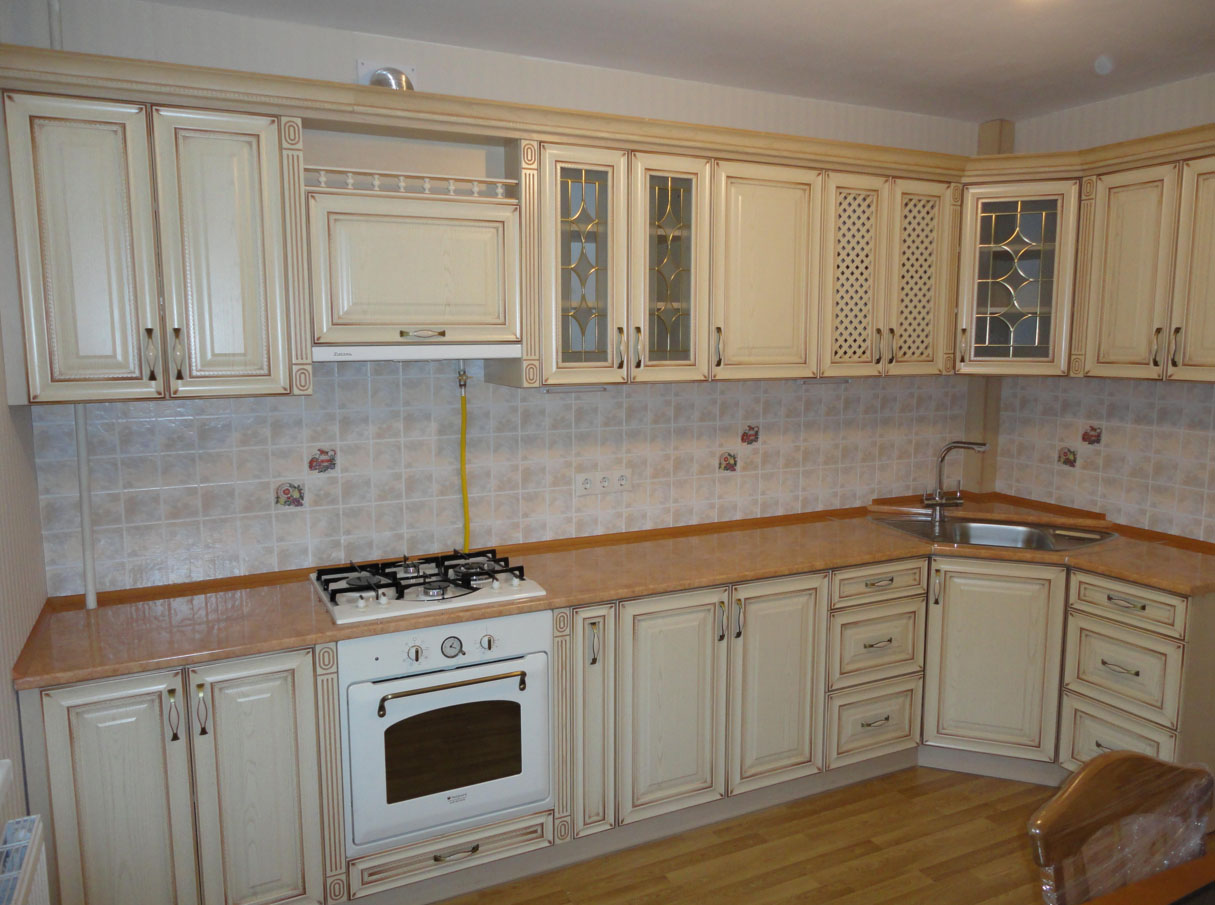
What is it - patina
People, involved in collecting coins and antiques, constantly faced with the, that antique items made of wood, precious metals, bronze and brass, which were kept in good conditions, has visually visible patina of antiquity. In professional language called a patina patina. There patina on furniture, on ancient coins and household items.
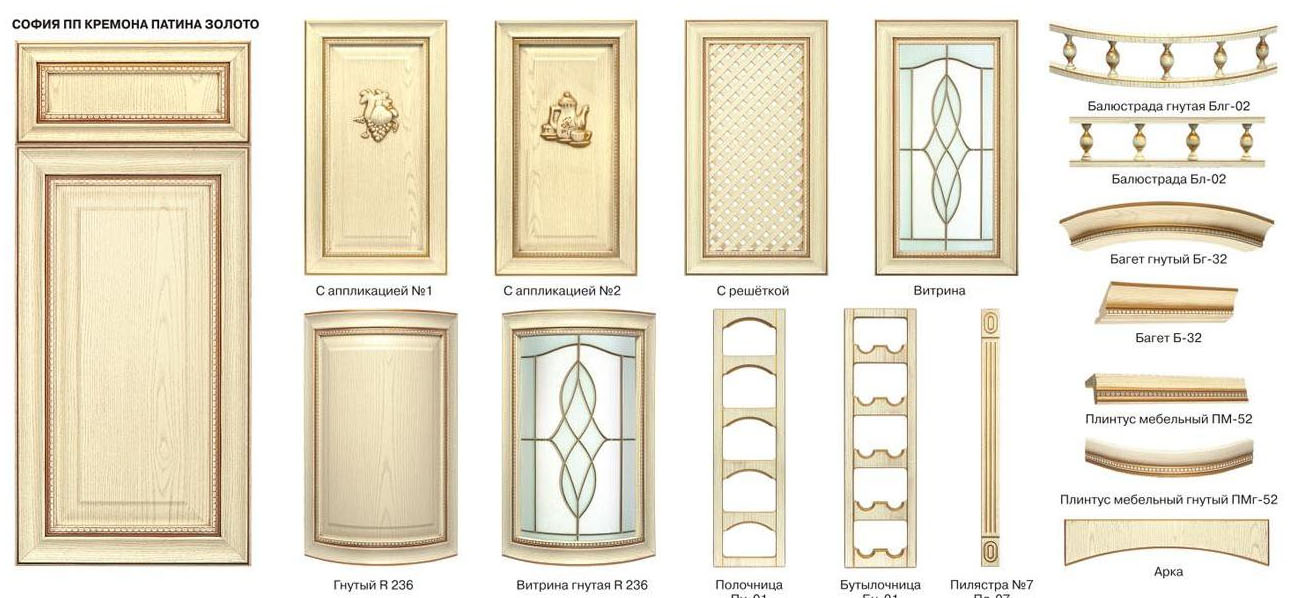
Among the items professionals, patina layer having untouched, valued several times higher, than refined products from it, even if they will shine, as new. In fact, patina in this case acts as a kind of benchmark, confirming, that the subject has a solid history.
Possession of antique furniture, which can be determined directly by the characteristic darkening layer and microcracks, It gives a special status to owners. Her proud to show guests, pleasure in telling the story Headset. Therefore, this interest is like furniture from buyers. but, not everyone has the opportunity to make such expensive purchases.
Considering this, designers have developed special technologies. Artificial aging tree is no longer a problem. Patinirovanie furniture, performed by professional artists, you can create real masterpieces of inexpensive materials.
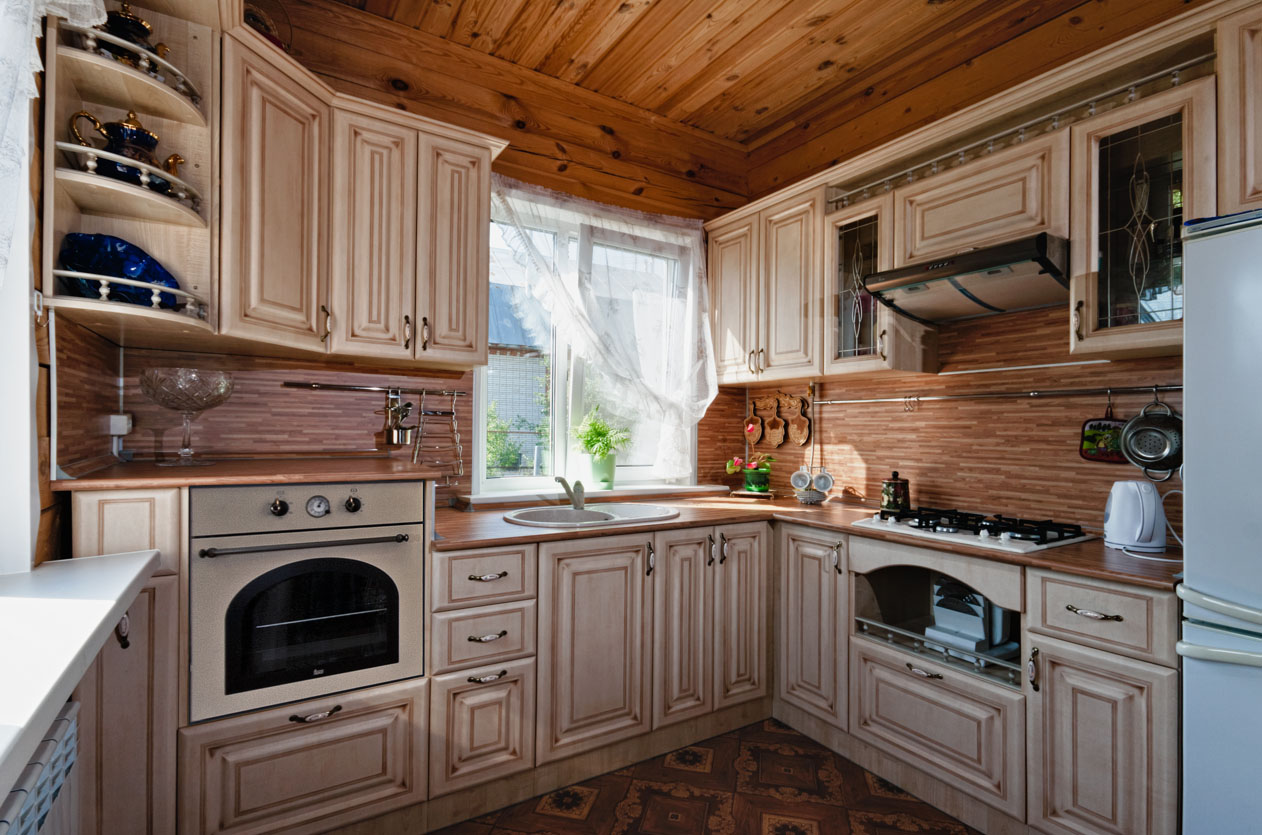
Patina can do, as array, and produce patirovannye MDF facades. execution quality is so high, that very few people will be able to distinguish a fake. Looking at kitchen, confident man, it's an old tree, until the door will not open. Only if he finds, that only the facades with patina, and the rest of the design is quite modern.
Today, designers are so artificially aged wood, that are made with high reliability living room and kitchen in the style of Provence. Applied to the kitchen fronts white patina and light scuff allow people to create at home a small corner of the French countryside.
The use of patina
patinated, as artificial aging products, used in various fields.
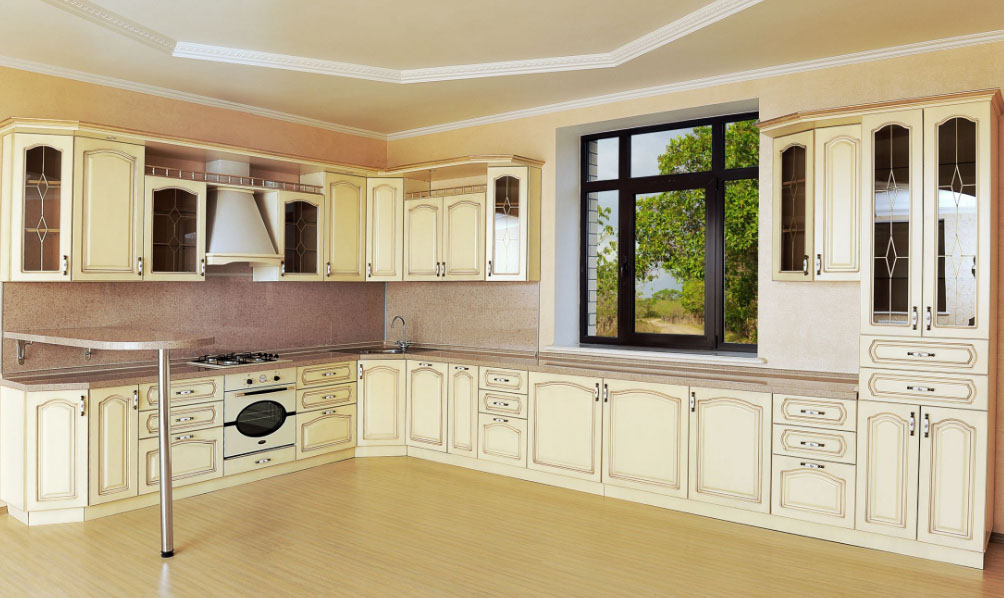
- Modern gift shops are trying to reach people with different purchasing power, so they actively trade objects antique, made today, and having a patina effect, made by skilled craftsmen.
- numismatists, collecting old coins, Seek professional advice. Patina made with his own hands on the metal coins, increase the self-esteem of these "collectors". The same make and manufacturers of copies of ancient coins.
- Spread patinas on wood furniture manufacturers. Its cover and a texture space milling wooden elements, well done patina on MDF facades for the kitchen.
- Artificial patina also cover fittings, applied to the manufacture of "antique" furniture.
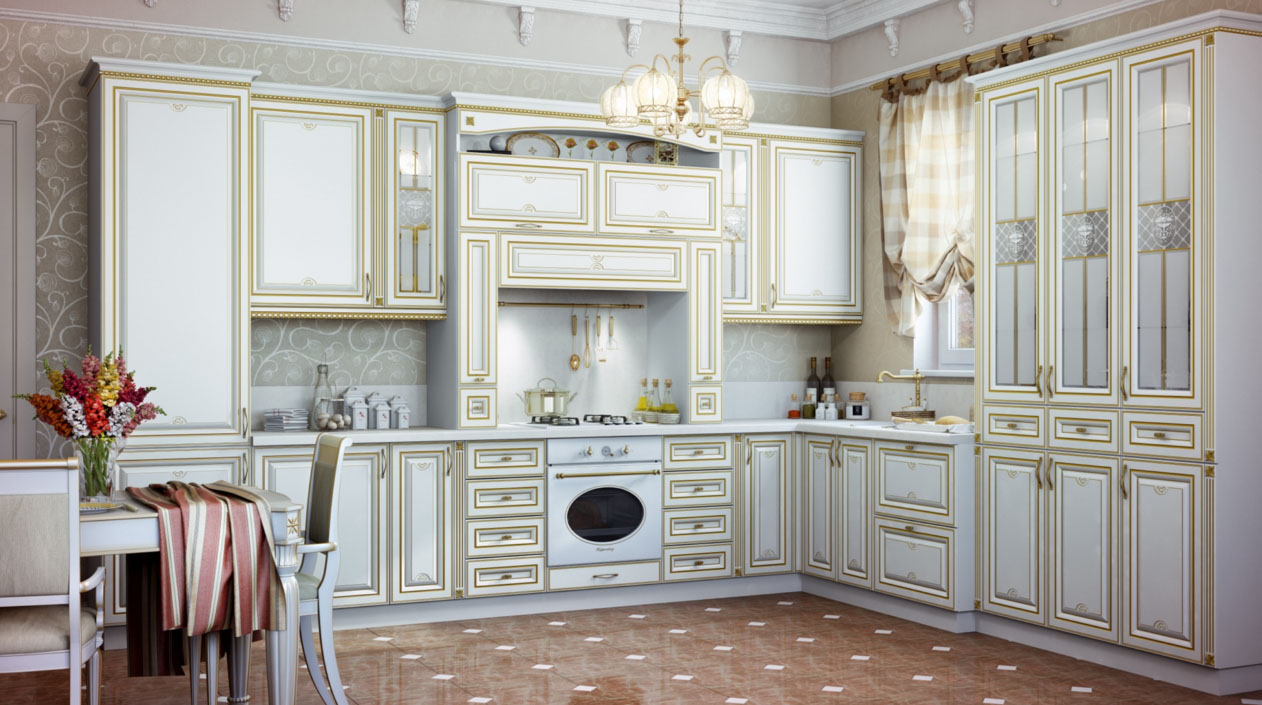
Kinds
Types and methods of applying patina may differ from each other.
- The style may differ patination - thin layer of patina, filling and obsolescence.
- Obsolescence is made from mashing in texture, while the other two styles - without mashing.
- Obsolescence implies a clear and rich selection of milling, and filling the patina is applied to milling smoothly.
Wherein, from furniture manufacturers are catalogs of textures of different trees, which describe methods patination.
In the furniture industry, there are two application technology patina on wooden parts.
- Membrane vacuum pressing.
- Manual application of paints and varnishes on the facade and other details.
Patinichnogo kinds of plaque are different depending on the colors and materials used, and the surface, to which they are applied. They depend on the method of applying the paint on the facade.
simple patinated
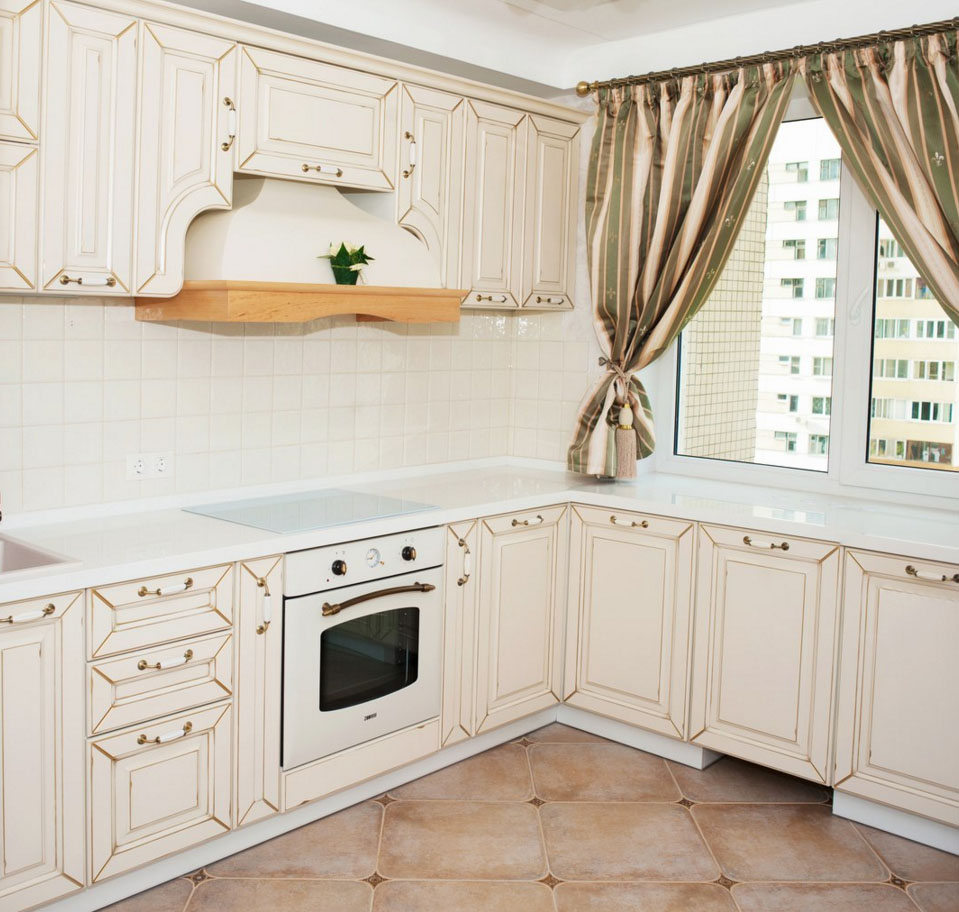
This is the easiest way to make a patina with their hands. On the front side of the facade of the laminated preform MDF and solid wood is applied to the base paint composition. It should smooth the surface and to form a base layer. After drying the coated composition it thoroughly skin with sandpaper. Patina for wood in this case will act as a covering paint composition. The level of abrasiveness and efforts must be adjusted depending on the desired pattern. In conclusion, a special surface is required to cover the transparent matte.
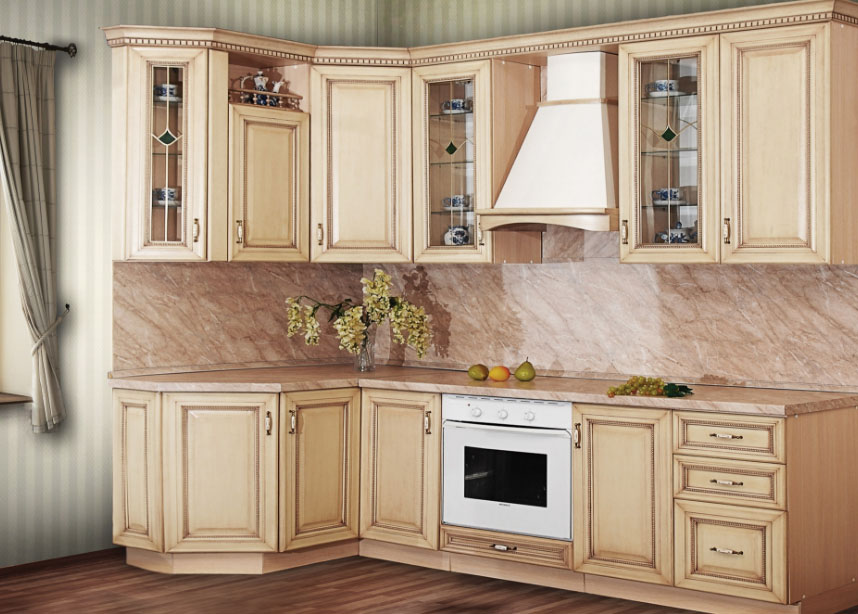
A method using bronze, gold and silver
Thus processed food which does not gloss patina. Treated surfaces should have a relief surface. since gold, silver or bronze applied additional layer, basic background should be prepared in advance and have a matte finish. Additional colors are applied to the protruding parts. After drying the surface is also slightly oshkurivayut. Olden is not intended to glitter.
Patina and craquelure
Behind these words lies a more complex process of artificial aging. Required to achieve the appearance of cracks and formation of "raid" of antiquity. Application faceted layers of lacquer made. In this case the next layer is applied to the not yet fully dried out prior. This creates a base for the formation of cracks. For their appearance requires a sufficiently large number of layers, so this time-consuming process. Patina with your hands to the desired shade is applied to the surface with cracks Wink. It was only after the complete drying of the prepared facade it is necessary to sand.
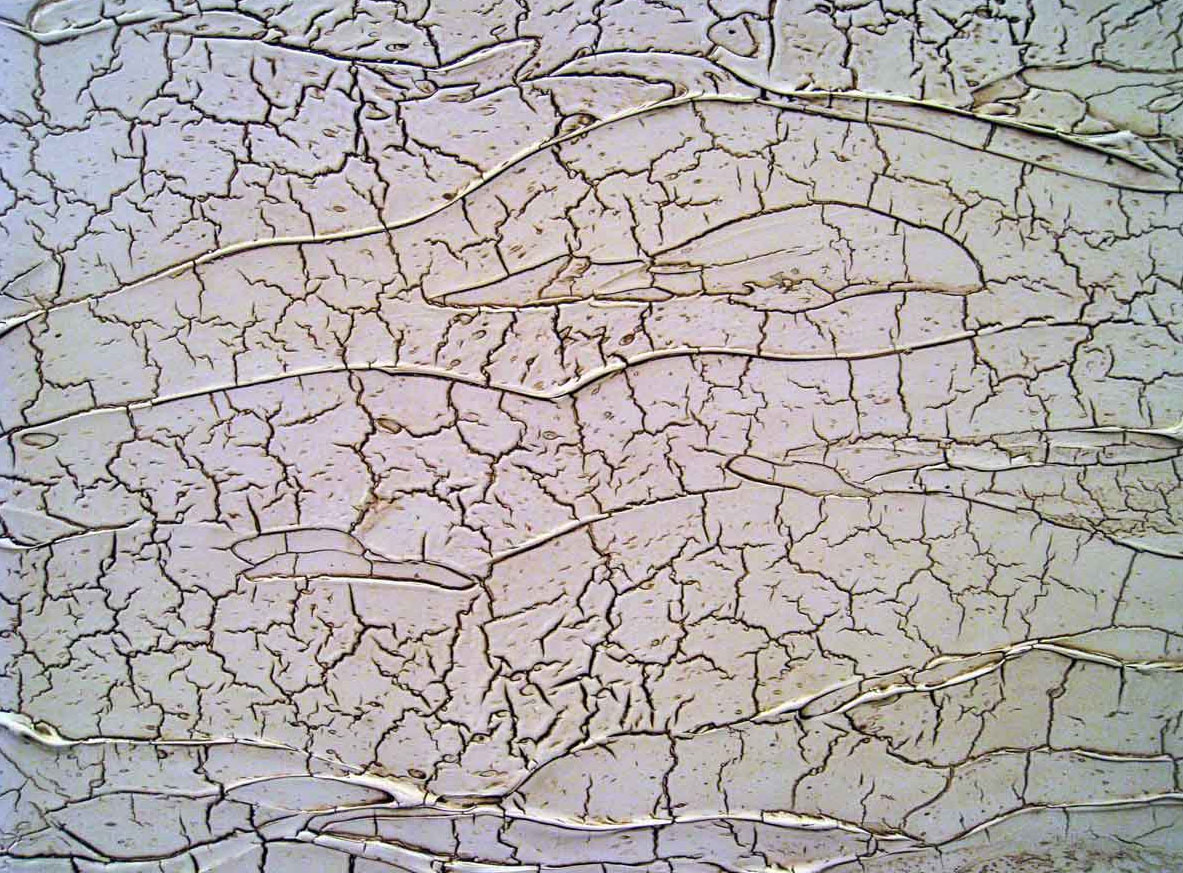
In the manufacture of kitchen facade film patina is the most common surface. Because PVC film coated with a patina simple cheaper method of manufacturing such furniture. As a result, it falls into the top category of cheap furniture.
Patina own hands
Patinated wood with their hands - it is quite feasible task. It is better to use the easiest way. "Wear" is possible as the door made of solid wood, and the facade of MDF.
MDF for kitchen door has two sides. On the inside is covered with a light plastic. Process should be outside of the facade.
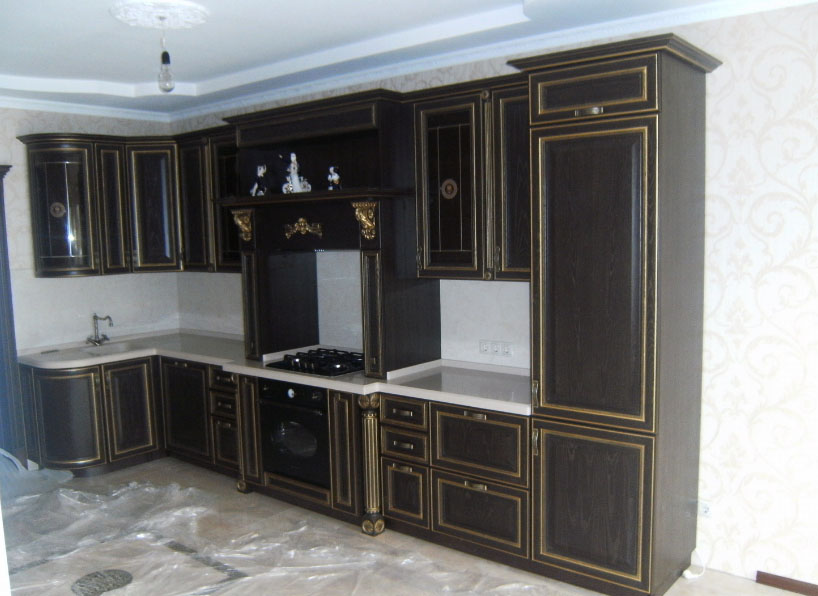
- Initially deposited insulator, yet it is called a barrier-primer. Apply it needs to spray, because it requires a very thin, even layer - it is a prerequisite.
In preparation for the work necessary to choose a barrier-primer for laminated surfaces. This is due to adhesive properties of the insulator.
- Primer based on polyurethane is applied to the second layer is completely dried up barrier-primer. It should be colorless.
Primer based on polyurethane dries quickly, This requires a continuous process control.
- Dried out the second layer is polished with sandpaper.
- After sanding, a layer of patina. To do this, there are ready-made compositions.
- Past patinated surface is also polished.
- Finally, the product is coated with transparent matte.
successful repair!
